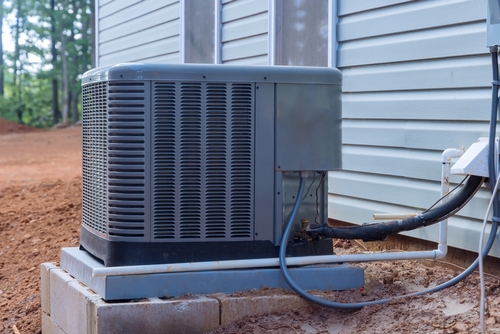Maximizing Energy Efficiency: Tips for Optimizing Your HVAC System
March 28, 2024 1:32 pm Leave your thoughtsHaving an efficient HVAC system in your home is crucial not only for your comfort but also for your energy bills. Heating and cooling typically make up a significant portion of a household’s energy expenses, so optimizing your HVAC system can lead to cost savings as well as reduced energy consumption. If you’re looking to maximize the energy efficiency of your HVAC system, here are some tips to help you achieve that goal.
1. Regular Maintenance is Key
One of the most important things you can do to keep your HVAC system running efficiently is to schedule regular maintenance. An HVAC professional can inspect your system, clean filters, check for any leaks or issues, and ensure that everything is in good working order. By keeping up with regular maintenance, you can prevent problems before they arise and ensure that your system is running as efficiently as possible.
2. Replace Air Filters Regularly
Air filters play a crucial role in the efficiency of your HVAC system. Clogged or dirty filters can restrict airflow, making your system work harder to heat or cool your home. Make sure to check your air filters regularly and replace them as needed, typically every 1-3 months depending on usage. This simple maintenance task can go a long way in improving the efficiency of your HVAC system and extending its lifespan.
3. Invest in a Programmable Thermostat
A programmable thermostat allows you to set different temperature levels for your home throughout the day, based on your schedule and preferences. This can help you optimize your heating and cooling usage and reduce energy consumption when you’re not home or when you’re sleeping. By setting your thermostat to lower or raise the temperature during times when you’re away, you can save on energy costs without sacrificing comfort.
4. Seal Leaks and Insulate Properly
Air leaks in your home can waste energy and cause your HVAC system to work harder to maintain a consistent temperature. Make sure to check for drafts around windows and doors and seal any gaps with weatherstripping or caulking. Proper insulation is also crucial for energy efficiency, as it helps trap heat in the winter and keep it out in the summer. Adding insulation to your home can help reduce the workload on your HVAC system and lower your energy bills.
5. Optimize Airflow
Ensuring proper airflow in your home is essential for the efficiency of your HVAC system. Make sure that vents and registers are not blocked by furniture or other objects, as this can restrict airflow and make your system less efficient. Additionally, make sure that air ducts are clean and in good condition, as dirt and debris can impede airflow and reduce efficiency. By optimizing airflow, you can help your HVAC system heat and cool your home more effectively.
6. Consider Upgrading to a High-Efficiency System
If your HVAC system is old or inefficient, you may want to consider upgrading to a high-efficiency system. Newer models are more energy-efficient and can help you save on energy costs in the long run. Look for systems with high Seasonal Energy Efficiency Ratio (SEER) ratings for air conditioners and Annual Fuel Utilization Efficiency (AFUE) ratings for furnaces. While upfront costs may be higher, the long-term savings and improved efficiency can make it a worthwhile investment.
7. Use Fans to Supplement Your HVAC System
Ceiling fans and portable fans can help circulate air throughout your home and supplement your HVAC system. In the summer, ceiling fans can help cool your home by creating a breeze, allowing you to raise the temperature on your thermostat and reduce the workload on your air conditioner. In the winter, ceiling fans can help push warm air down from the ceiling, making your home feel warmer without increasing the temperature on your thermostat. Using fans strategically can help improve the efficiency of your HVAC system and save on energy costs.
8. Open Windows and Use Natural Ventilation
On mild days, consider opening windows and using natural ventilation to cool your home instead of running your air conditioner. This can help lower indoor temperatures and reduce the strain on your HVAC system. Additionally, natural ventilation can help improve indoor air quality by bringing in fresh air from outside. By taking advantage of natural ventilation whenever possible, you can reduce energy consumption and improve the efficiency of your HVAC system.
Summary
Maximizing the energy efficiency of your HVAC system is not only beneficial for your wallet but also for the environment. By following these tips and implementing energy-saving practices, you can optimize the performance of your HVAC system and reduce your energy consumption. From regular maintenance to insulation and airflow optimization, there are many ways to increase the efficiency of your system and lower your energy bills. By making these changes, you can enjoy a comfortable home while also being mindful of your energy usage.
Need a HVAC Technician in Mabank, TX?
Ken’s Comfort Zone Air Conditioning is proud to remain a family-owned and -operated business, providing residential clients and businesses alike with a complete range of central heating, air conditioning, and ventilation services, including service calls, repairs, and installations. We’re proud to have been awarded the Monitor Newspaper 2015 Ceder Creek Lake area Readers’ Choice Award for best air conditioning contractor. Additionally, we carry an A+ rating with the Better Business Bureau and are members of the local Chamber of Commerce and the NFIB. For your peace of mind, Ken’s Comfort Zone Air Conditioning is fully licensed, bonded, and insured. Call us today for all of your HVAC needs!
Categorised in: HVAC
This post was written by admin

